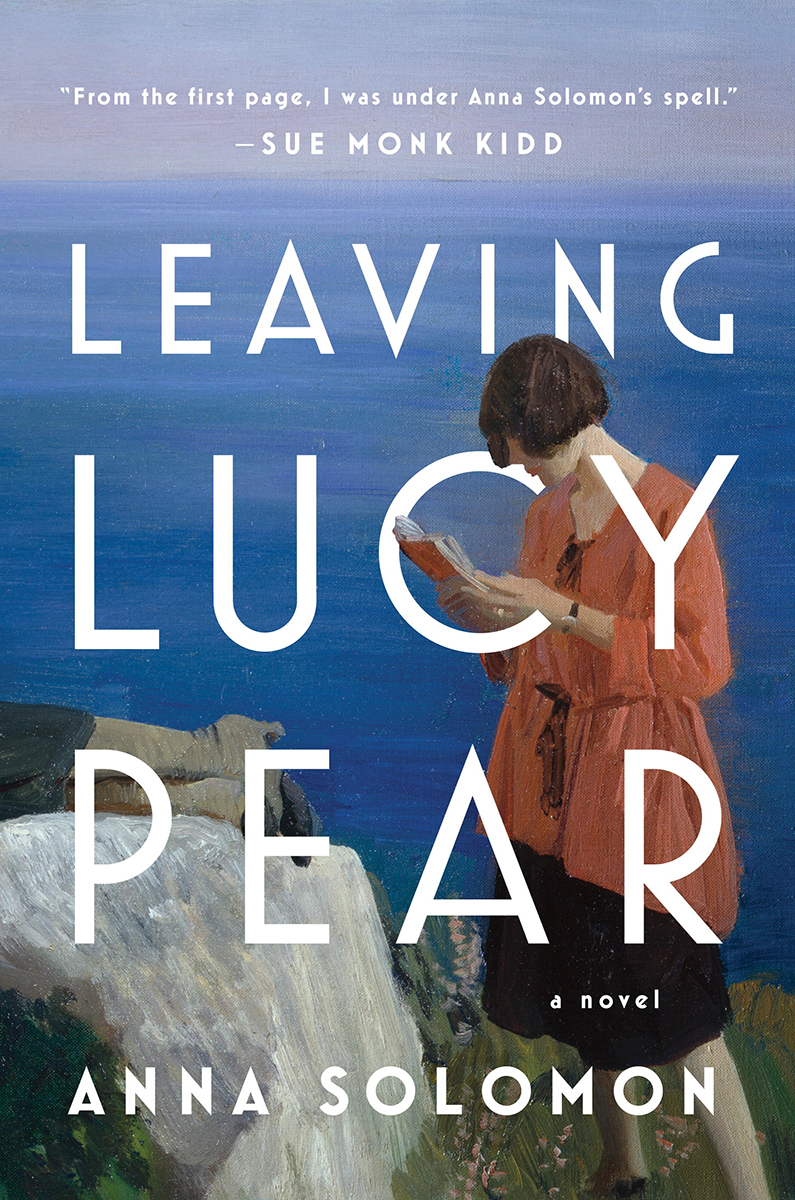
Leaving Lucy Pear
A Novel
کتاب های مرتبط
- اطلاعات
- نقد و بررسی
- دیدگاه کاربران
نقد و بررسی

May 9, 2016
The lives of a girl’s biological and adoptive mother are juxtaposed in this new work from Solomon (The Little Bride), a dreamy blend intertwining the harsh gender and class boundaries the women struggle against in the early 20th century. In 1917, Bea, the privileged daughter of Jewish industrialists in Boston and a prominent temperance leader, leaves her out-of-wedlock baby girl in her uncle’s pear tree orchard in Cape Ann. The baby is found by Emma, a dirt-poor Irish Catholic fisherman’s wife and mother of nine, who takes her in and names her Lucy Pear. Bea and Emma cross paths again in 1927 when Emma, the mistress of a politician courting Bea’s endorsement, becomes a maid for Bea’s aging uncle. Solomon slowly unravels the revelation of the women’s shared past—and future—and the horrific secret the little girl hides from both of them. The convoluted story of these women, and their little girl’s tortuous past, is set against the tumultuous labor unrest and racial politics of the era. Solomon rushes to wrap up the threads of her ambitious tale with a sudden burst of new beginnings, yet deftly manages to keep this lushly written look at two women’s haunting choices from slipping into family fantasy. Agent: Julie Barer, Book Group.

May 1, 2016
In 1917, on the verge of a breakdown, 18-year-old Beatrice Haven leaves her newborn daughter under a tree in her Uncle Ira's pear orchard, knowing that the poachers who "harvest" the fruit will provide the baby with a home. Lucy Pear Murphy, nearly ten, doesn't look like her Irish parents or her eight siblings, but she is eager to help her mother, Emma, set up an operation to produce a fermented drink made from the pears. Emma approaches Josiah Story, the manager of the stone quarry, who is now running for mayor, for a loan. With her husband away on a fishing vessel, Emma seizes the opportunity to make some extra money. But Josiah has more in mind than a business proposition. In addition to having an affair, he sets Emma up as Ira's nurse. Since Bea is now a temperance crusader, he hopes to earn her endorsement and therefore the women's vote. Emma knows immediately that Bea is her daughter's mother. VERDICT Solomon's (The Little Bride) razor-sharp prose scrapes her characters raw as she plants them deeply in the history and turmoil of 1920s New England. A beautifully rendered tale of discovering one's true nature. Highly recommended.--Bette-Lee Fox, Library Journal
Copyright 2016 Library Journal, LLC Used with permission.

June 1, 2016
This quietly powerful literary novel begins in 1917 when Beatrice Cohn leaves her newborn daughter under a pear tree in her Uncle Ira's orchard and watches as a woman finds the baby. From this point, two familiesone made of Bea's upper-class Jewish business owners, the other, the poor Irish Catholic family who claim the childkeep the infant's origins secret, until circumstances dictate otherwise. Bea spends a decade depressed and feeling guilty, while Emma Murphy raises her daughter, whom she names Lucy Pear, alongside her eight other children, all while having an affair in her husband's absence. The small Cape Ann, Massachusetts, community is sharply divided between the haves and the have-nots, and tension rises and comes to a boil, with Bea and Lucy at the center. As in The Little Bride (2011), Solomon excels at portraying flawed characters whose passive-aggressiveness overrides their search for love and success. But when the two mothers play tug-of-war for Lucy, readers cannot help but empathize with all involved. This moving story is thematically similar to Amy Hatvany's Somewhere Out There (2015), while the wealthy, self-absorbed characters evoke Sara Gruen's At the Water's Edge (2015).(Reprinted with permission of Booklist, copyright 2016, American Library Association.)

























دیدگاه کاربران